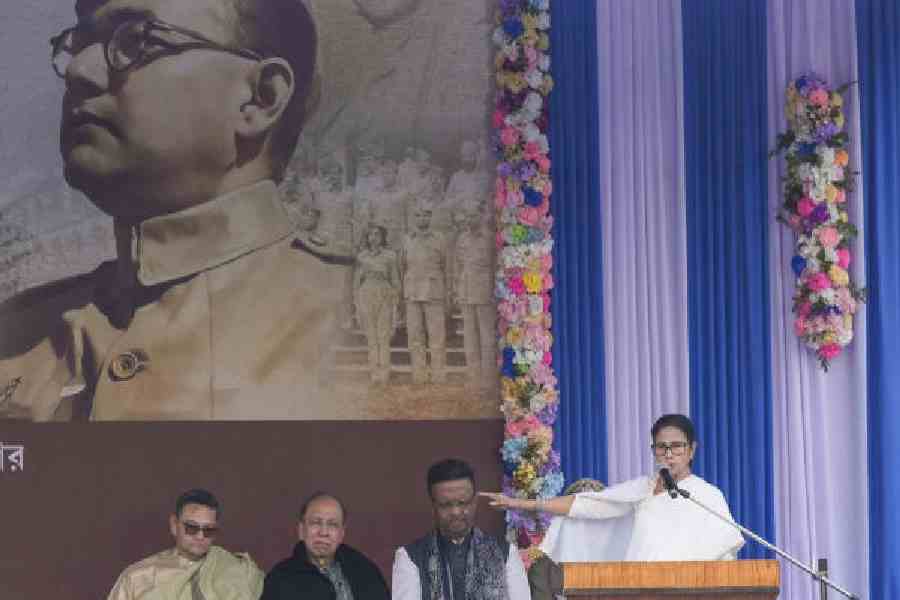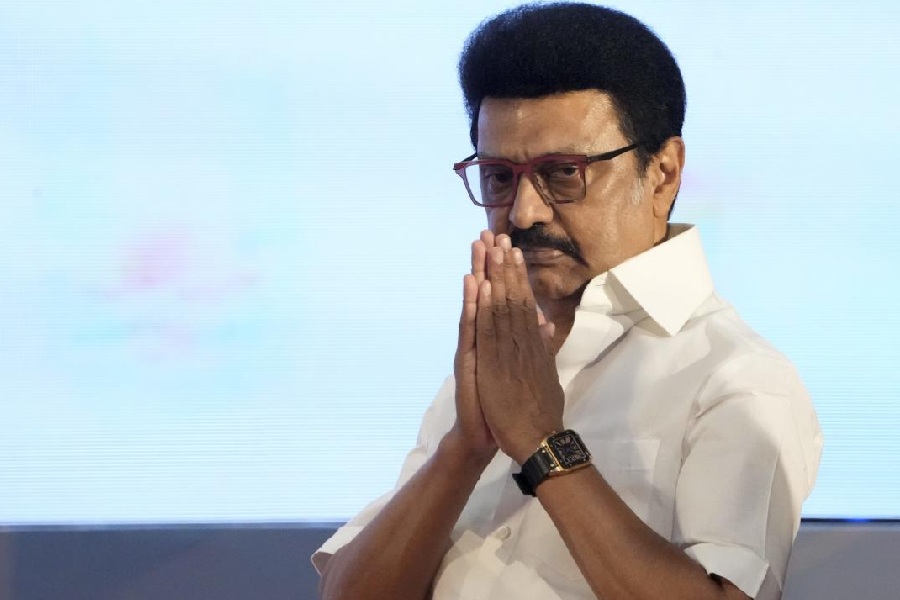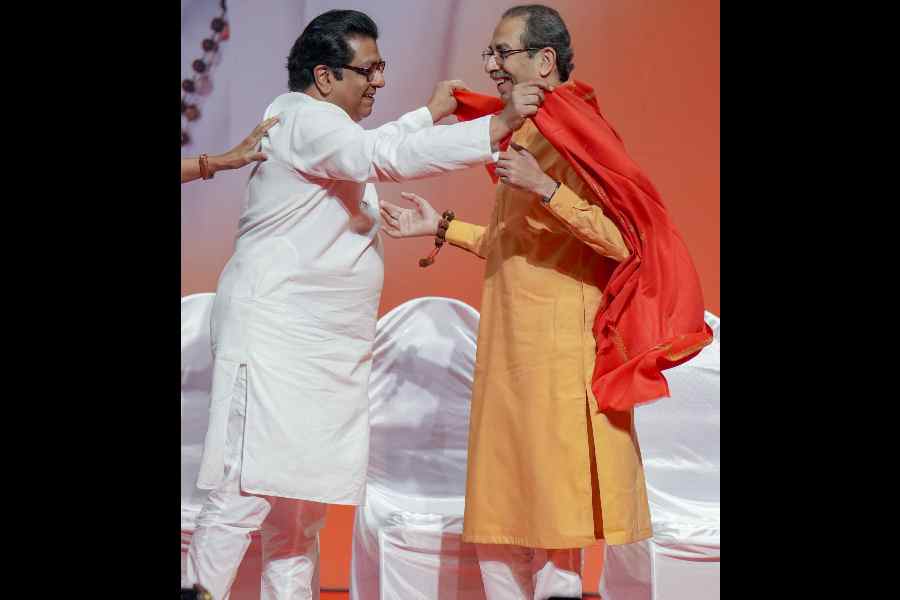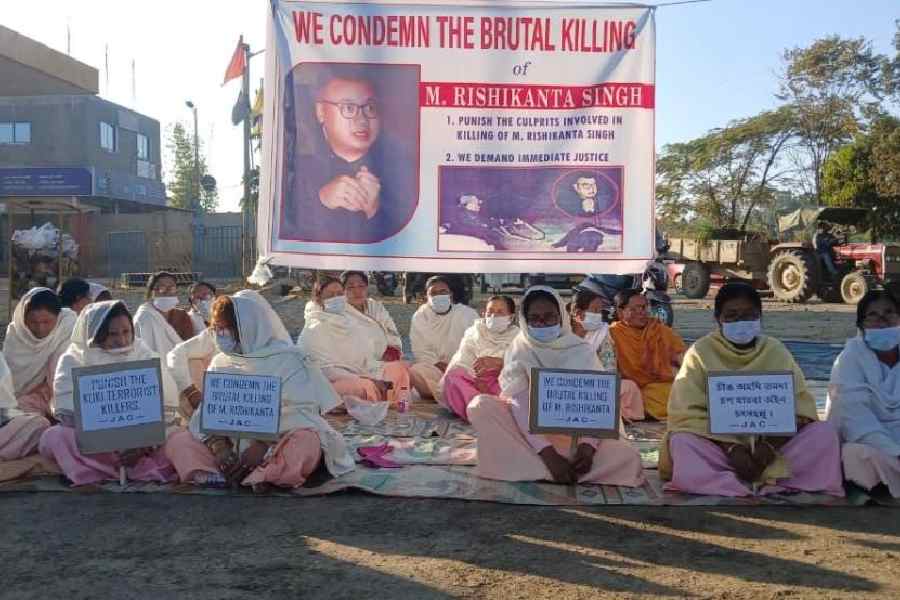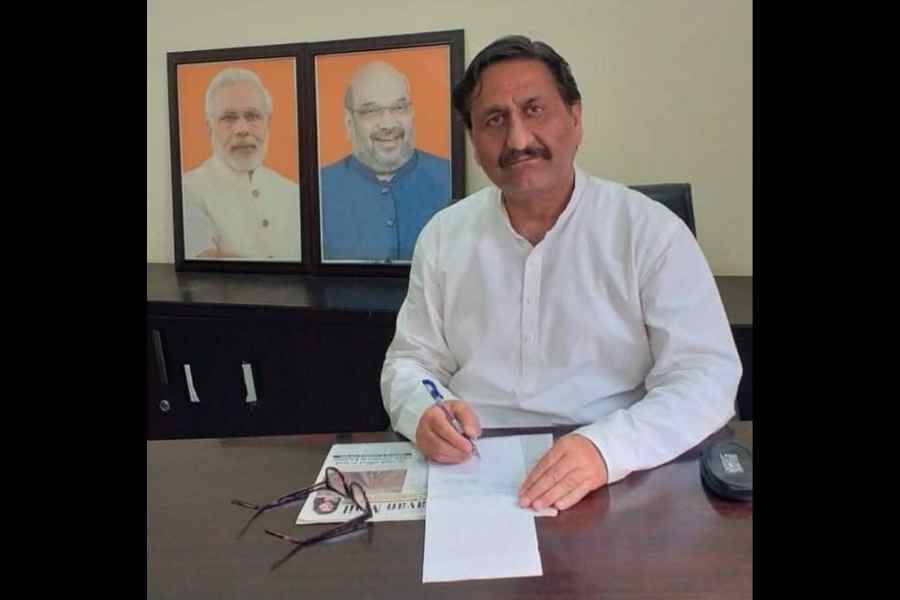 |
A few months ago, at an Indian Army camp in Jammu and Kashmir, a woman lieutenant strolled into the officers’ mess after work one evening to receive the shock of her life. Even before she could find herself a chair to settle into, she was bawled at by her commanding officer (CO) from across the room. Her gait was probably suspect, the CO pondered aloud, and asked her to walk up to the bar and fetch him a drink, so that he could judge her walk in the process. The lieutenant and her CO weren’t the only people in the room. There were dozens of other officers around ? none of them was a woman. Deference was, she thought, the only way out of the situation, and the lieutenant obliged.
Susmita Chakraborthy may be dead and gone and the vice-chief of the army staff may have said sorry, but anecdotes such as these only go on to fuel the debate on whether the armed forces is a comfortable place for women to work in. Chakraborthy, who was said to have been depressed, committed suicide last week, just as the army vice-chief kicked up a furore by saying that the Indian Army could do without women. And an issue, long ignored by everybody, captured centre stage.
Almost 15 years have gone by since the doors of the forces were opened to women. But the argument continues over whether the establishment has got over its traditionally male notions to allow women personnel to settle in with minimal adjustment, or if testosterone is the only hormone that rules.
That armed combat is an exclusively male business is something not many would want to challenge. And the current norm of commissioning women officers in non-combat wings of the armed forces perhaps only seconds that belief. But whether or not the element of machismo should percolate down from the gritty artillery or infantry divisions to make its presence felt in more unisexual wings of the forces is an issue many critics can’t stop reading into. For the ‘rub-off’, they suspect, does happen.
Ask Alok Kishore. Currently working as a lawyer with Delhi-based legal firm A&M Consultants, the former major is all set to file a case in the Delhi High Court to seek redressal for his client, a woman major in the Indian Army, who he says has been subject to gender discrimination at work. “She has been denied the rank of lieutenant colonel, despite having done the requisite 14 years of service,” says Kishore, who also represented flying officer Anjali Gupta in her legal battle against the Indian Air Force. “Secondly, her pay scale still remains that of a captain, which is one notch below even her current rank.”
A third grievance his client has against the army is the force’s unwillingness to grant her permanent commission (PC). Incidentally, the army doesn’t hand out PCs to its women officers, barring those working in the medical corps. Women commissioned in other wings are all employed on a short service commission (SSC) basis, for a period ranging from five to 14 years.
That, effectively, could be seen as a form of gender bias. Even in the medical wing, where women do land permanent jobs, problems seem to exist. The medical nursing service (MNS), for example, is a wing which employs a good number of women and works in tandem with the medical corps of doctors, where men have a significant presence. “The highest rank an MNS staff can achieve is that of a major general,” says an officer currently working with the MNS. “But for all practical purposes, an MNS major general is subject to carry out orders passed by a brigadier ? who is lower in rank than a major general ? in the medical corps.”
The officer, who also played a key role in a stand off with the army two years ago over a demand by the MNS to wear olive green army uniforms instead of white skirts, which the authorities ordain for them, says MNS officials are not paid on a par with other officers either. “Although every one in the army starts off as lieutenants and draws equal salaries, MNS staff are deprived of successive increments which come with promotions,” she says.
While incidences of anomalies in pay and rank may be material evidences to go by, women also seem to get left out in the cold when it comes to day-to-day life in the forces. “The imbalance happens primarily because men severely outnumber women in the forces, and the feminine demands of a single woman in a group of 20 personnel often get eclipsed by collective necessities,” notes retired major-general and AVSM awardee Afsir Karim. “The problem worsens since women are not always bold enough to point out their problems to their male superiors, who would otherwise be unmindful of their concerns.”
It is this lack of communication that can lead to situations where female sentiments are left to the mercy of male arrogance. Kishore fought a court martial in 2004 where a male doctor was tried for flouting medical rules ? he had gone ahead with the physical inspection of a female officer in the absence of a female attendant who, policy says, must be present in such situations. “The doctor was eventually acquitted,” says Kishore. “And the jury that tried him did not include a single woman in its panel.”
But then, there are those who wonder whether making the armed forces more androgynous in form and nature to favour women officers is feasible. And they aren’t sure if doing so will, in any way, benefit the forces, whose ultimate objective ? at the end of the day ? is to kill.
Drawing parallels with other standing armies of countries such as Israel and the US, where women personnel match steps with men to operate in battle zones may not be the right argument to begin with, thinks retired colonel S.K. Verma. “An American woman is far less inhibited, and so is American society,” says Verma. “Just think of the reservations an Indian woman’s parents would have over her sharing barracks with an all-male troop.” Clearly, sexual liberation, along with sociological differences, can’t be ignored in trying to justify the presence of women in the Indian Army.
To make matters worse, there seems to be an increasing trend among female officers to try and take advantage of the fact that the army can’t handle its women, say critics. A woman has no business joining the forces unless she is ready for the tough life ahead, says major Sangita Tomar, a first-batch inductee and a former judge advocate general’s department member. “But women these days often tend to cite their femininity and family obligations to land themselves cushy postings in undemanding departments such as public relations, thereby veering away from rigorous engagements,” she says.
The race for comfortable postings ? once coveted by men finishing tedious assignments in demanding sectors ? is now invariably won by women. “Men have families too, but their commitments are seldom prioritised over those of their female colleagues,” argues Tomar. “The net result is frustration in the frontier, something that the troops would be far better without.”
What they would also perhaps be better without are charges of sexual harassment that may arise out of certain acts which are but a regularity in the armed forces. “Every army personnel is given to swearing,” observes Randip Hundal, a former captain now pursuing a career in finance. “But if a single woman takes offence at vulgarities showered on her by her superior and lodges a complaint for harassment, it would probably put the army in a spot. With a man, such a thing would never be an issue,” he adds.
What would also not be an issue is the act of giving or taking orders. “In a profession that is largely driven by machismo, it is difficult at times for a male officer to take orders from a female superior whom he considers physically inferior to himself,” argues Hundal. Seen the other way round, the equation becomes even more complex. “Given that the very presence of women disturbs the comfort level of men in the forces, a male officer might find it difficult to order women with the same ease as he orders his men,” says Verma. “Such discomfiture can well lead to tension.”
The war goes on. And a cease-fire seems a long way off.


